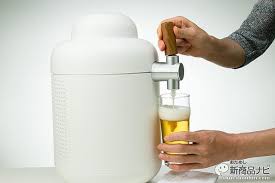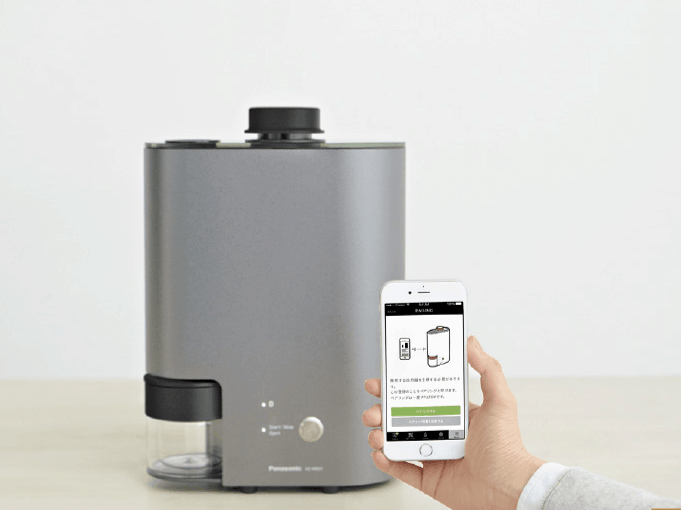On the wave of the “servitization” that crosses and affects the whole world, the most recent trend marked by the moves of some of the most famous Japanese manufacturing companies is the activation of subscription services. Many are launching structured services to consolidate and improve their relationship with customers, as well as stabilize their earnings. This market has developed and expanded rapidly since last year (2018): subscriber “queues” were formed starting from sectors selling contents such as music and films, then moving towards durable consumer goods such as furniture, toys and vehicles. It is the case, by the way, of Toyota Motor (how could they be missing ?!), whose KINTO service will be accessible starting from March 2019 in the Tokyo area, to reward users with points that can be used to pay for games and are assigned according to how safe and ecological is the use that they are going to do of their vehicle. Next to the automotive industry, food companies, of household appliances and consumer electronics are already on the start.
The “kirin home tap” service – launched in reality last year but suspended to improve the dispenser’s performance – will again allow the company greater stability in revenues thanks to direct and continuous connection with the more loyal to the brand (15 thousand those expected), who will be paying a monthly membership fee to get the priviledge of tasting fresh and bubbly beer at any time they wish, sent home just produced, fresh and directly from the factory.  This new experiential value has garnered strong support from beer enthusiasts all over the country, even if the subscription fee naturally entails for the consumer an expenditure that is much higher than the common purchase of the can. In addition to the superior quality of the product, that fee offers a trade off with immediacy , elimination of queues and of stocks of the product at home, beside the very fact of having no more need to leave the house. Not to mention the satisfaction of the exclusivity of the formula (e.g.: “Let’s see the match at my house …! I have the best draft beer in the world!”).
This new experiential value has garnered strong support from beer enthusiasts all over the country, even if the subscription fee naturally entails for the consumer an expenditure that is much higher than the common purchase of the can. In addition to the superior quality of the product, that fee offers a trade off with immediacy , elimination of queues and of stocks of the product at home, beside the very fact of having no more need to leave the house. Not to mention the satisfaction of the exclusivity of the formula (e.g.: “Let’s see the match at my house …! I have the best draft beer in the world!”).
To be sure of a result that does not fail in time, even after the enthusiasm of the first tests, Kirin has been investing a lot in the development of the means of execution and in every aspect of the service that can guarantee an “unparalleled” experience, from which the consumers’ desire to keep their subscription active. Although the refinements may seem not very significant in some cases, the service model the company calls “tank-to-glass” is really a good promotional initiative just if the sense of responsibility (saying: this company cares) is kept recognizable until the drink is poured into the glass”. explained Kirin to the national press: “The experience can be compromised forever and if you do not do everything possible to improve now, it will be a bigger problem when the scale of the business will be expanded. So we decided to improve immediately and regardless of expenses “.
Different is the case of Panasonic, whose traditional business offer has been providing a very huge range of product categories and items, but have surprisingly decided to aim for innovation about roasted coffee. Carefully selected coffee beans come home every month and consumers can drink superb coffee with “the world’s best coffee roasting technology”. The challenge of Panasonic’s “The Roast” service is to serve customers who long for enjoying a freshly roasted coffee. In addition to a “smart” roasting machine (priced at about 800 euro per unit) made with the quality that Panasonic bases on decades of experience as a manufacturer of home appliances and food processors, the maker provides subscribers with a coffee been pack of the weight consistent with consumption and with the subscription underwritten (200gr can bereceived by a subscription of approx. 30 euros per month). The user reads the QR code on the package by a dedicated smartphone application and sets the roaster. A simple click on the “start roasting” button from the application will take into the “magic”.
Due to the market stagnation and the saturation of the markets, needless to say a sales growth with new “classic” products (robots or other kitchen appliances) had too few successful perspectives and the company has become aware that they had to combine the hardware with some experience of usage. In Italy, the coffee mill is not a novelty, but as we know local cultures can determine a lot in the choices to launch of each new product. Panasonic has identified in coffee – which in Japan is given a clear growth compared to tea or other hot drinks, the object of experience that can made the difference.  Considering also the lack of knowledge about this kind of product (just because it is less widespread than tea and to date it has been almost exclusive prerogative of high-gourmet tasters only) Panasonic has made the decision to provide a technologically proper tool for ensuring the freshness of the ingredient and the maintenance of the aroma, so as to generate a long recalled experience for many people, and not just for purists or amateurs alone. If the pleasure of coffee lies in its taste and aroma, while these are determined by 90 percent of the roasting of the beans, Panasonic has placed in this the key to its new commercial challenge. The Japanese maker is now basing their customers’ loyalty onto the satisfaction to afford an expensive and refined drink, as well as to the pleasure of a freshly toasted coffee that can be replicated and is made easily accessible any time.
Considering also the lack of knowledge about this kind of product (just because it is less widespread than tea and to date it has been almost exclusive prerogative of high-gourmet tasters only) Panasonic has made the decision to provide a technologically proper tool for ensuring the freshness of the ingredient and the maintenance of the aroma, so as to generate a long recalled experience for many people, and not just for purists or amateurs alone. If the pleasure of coffee lies in its taste and aroma, while these are determined by 90 percent of the roasting of the beans, Panasonic has placed in this the key to its new commercial challenge. The Japanese maker is now basing their customers’ loyalty onto the satisfaction to afford an expensive and refined drink, as well as to the pleasure of a freshly toasted coffee that can be replicated and is made easily accessible any time.
In addition, Panasonic operates a “Panasonic CLUB” in the web, by a cheap registration fee that grants the company a channel to know more and more in detail about the user experience, while they can gather hints to improve the product and service with increasing accuracy and effectiveness. It’s like killing two birds with one stone; help the product development while increasing the sales opportunities and performance.
Fonti:
“Mensile Kirin: un anno di lotta per mettere a punto le migliorie della birra” di Nakamura Yusuke per Nikkei Cross Trend, 4 feb.2019, elaborazione dal giapponese di R.Giovannuzzi. “Caffè Panasonic? Rendere il tocco di elettronica di consumo + ingredienti” di Sakai Daisuke per Nikkei Cross, 5 feb 2019, elaborazione dal giapponese.di R.Giovannuzzi
